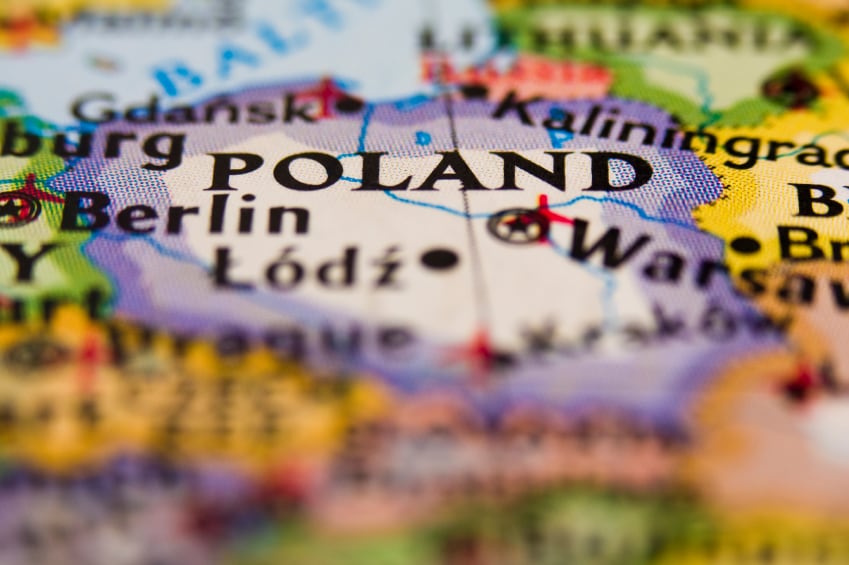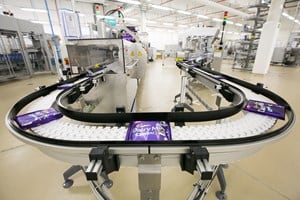The company has invested $30m in the Skarbimierz factory to add what it describes as its ‘Manufacturing Line of the Future’. Mondelēz will create 90 new jobs at the plant, which opened in 2010.
Evolving consumer demand in Europe
“Our lines of the future, such as the one opened in Skarbimierz, help to meet local production needs and evolving consumer demand across Europe,” Heike Hauerken, area manager external communications & public affairs for Central Europe at Mondelēz told ConfectioneryNews.
Europe accounts for half of Mondelēz’s global chocolate revenues. Mondelēz’s net revenues in the region fell 16.5% for the first half of this year mainly due to wholesale price increases it made in chocolate, which were implemented before its competitors.
Poland’s chocolate market

Mondelēz leads the Polish chocolate confectionery market with a 15% share, followed by Lotte Wedel (11%), according to figures from Euromonitor International. The research organization predicts value sales in Poland’s chocolate market will rise at a compound annual growth rate (CAGR) of 3.3% up to 2018. A report from KPMG valued the country’s chocolate confectionery market at PLN 6.4bn ($1.7bn) in 2013.
The company’s CEO Irene Rosenfeld said in July she expected European revenues to improve in H2 as competitors’ price hikes started to be reflected on retail shelves.
Hauerken added Europe would remain “a key market with strong purchasing power and long-term growth potential”.
Flexible line for chocolate assortments
Mondelēz’s new Polish chocolate line will produce existing SKUs for international brands such as Milka, Cadbury Dairy Milk, and Oreo, as well as Polish brand 3bit.
“The line is designed to enhance our production capacity as it gives the flexibility to produce different kinds of assortments,” said Hauerken.
“What distinguishes the line from others is its modularity in terms of size, flexibility and configuration. It allows us to freely reconfigure the line in the future - standardized parts can be put together like bricks. One part in, one part out - and the very same line can produce different bars e.g. with or without filling,” he said.
Increased capacity, not a production shift
Mondelēz has been restructuring its global manufacturing footprint over the past few years to transition from small-scale single category facilities to larger multi-category sites.
The company has been consolidating its gum production in Poland after announcing plant closures in Ireland, Botswana, Lebanon and Morocco.
Mondelēz also transferred production from Cadbury’s closed Kenysham plant in the UK to the Skarbimierz factory in Poland in 2010 soon after the takeover by Kraft Foods.

Hauerken said Mondelēz was committed to other facilities in Europe after the latest Polish investment.
“This represents an increase of capacity and comes as a result of new investments, not shifting capacity from other plants. We are also continuing to invest in other facilities in Europe, such as our recently announced £75 million ($115m) in Bournville, UK, and the recently installed new line in Bludenz, Austria,” he said.
Mondelēz also recently invested $15m to setup a global R&D center in the Wroclaw area.
Confectioners in Poland
Mondelēz's Skarbimierz plant is a two and half hour drive from Lodz, where Barry Callebaut recently pledged to invest $28m to expand its chocolate plant to serve Central and Western Europe.
Other confectioners have shifted European production to Poland in recent years to reduce labor costs. Danish Toms Group for example last year moved part of its packaging production from Germany to Poland for its Hachez brand.
